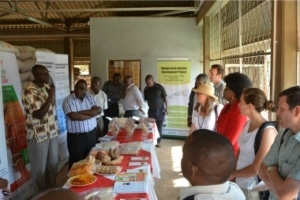Goal:
To test the validity of the Malawi CDCS integrated development hypothesis: “if assistance is integrated then development results will be enhanced, more sustainable, and lead to achievements of our CDCS goal: Malawians’ quality of life improved.”
Activities:
- Assessed impact evaluability and developed a quasi-experimental impact evaluation design using a mixed methods approach.
- At baseline and midline, SI completed surveys with a panel sample of 5,314 households in eight districts. The quantitative surveys captured household data on quality of life indicators across the sectors of health, education, economic growth, agriculture, environment, food security, democracy and governance, and perceived well-being. Gathered qualitative data from communities in the sampled districts on their perceptions of change in quality of life.
- Base and midline reports included quantitative data analyzed using panel regression modeling, and qualitative data. The endline data collection and analysis is planned for 2018.
- Completed two annual qualitative stakeholder analyses gauging experiences and perceptions of integrated development from USAID and its implementing partner staff, and Malawi Government representatives.
- SI has completed three policy briefs discussing findings related to service access and utilization, and how integrated development is being implemented in Malawi.
Results:
- Stakeholders have largely embraced integration, are coordinating and collaborating with each other more often, and conducting integrated activities.
- At midline, the integrated development approach had a positive impact on some quality of life outcomes, though there was no discernible impact on other outcomes (see report link below).
- Combining lessons from the impact evaluation and qualitative stakeholder analysis has been a highly valuable means to understand the integrated development approach from many angles.
Resources:
- USAID/Malawi
- Baseline report
- Midline report
- Stakeholder Analysis 2015: Integrated Development in Malawi: Stakeholder Perceptions and Practices
- Stakeholder Analysis 2016: Integrated Development in Malawi: Stakeholder Perceptions and Practices
- Stakeholder Analysis 2017: Integrated Activities in the Agriculture Sector: A Multilevel Case Study in Malawi
- Policy Brief: Beyond Access: Improving Service Utilization in Malawi
- Policy Brief: Making Integration Work by Creating an Enabling Environment: Lessons from Malawi
- Policy Brief: Implementing Integrated Development in Malawi
Contact: projects@socialimpact.com


 Photo credit: Kady Chiu, USAID
Photo credit: Kady Chiu, USAID